Haftar asks Egypt for help to end Turkish intervention in Libya
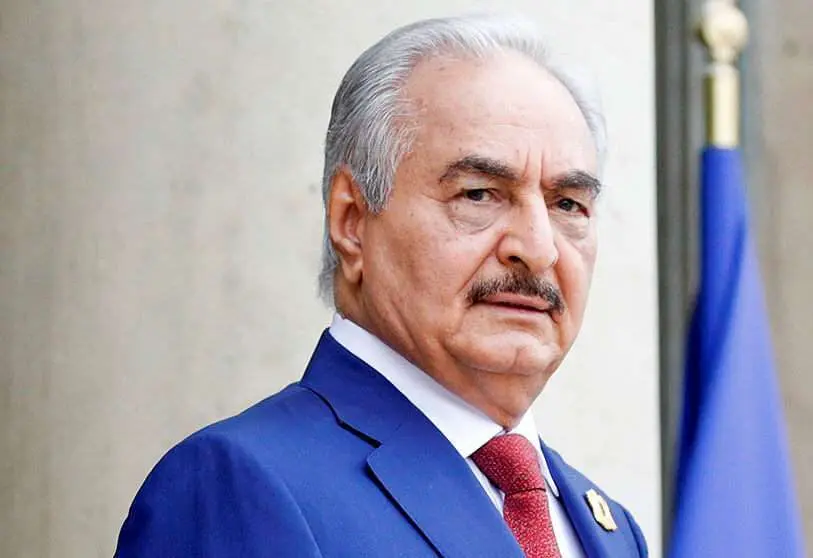
The commander of the Libyan National Army (LNA), Field Marshal Khalifa Haftar, on Wednesday called for international support from Egypt to end the Turkish intervention in the North African nation. Haftar's trip to Cairo came at the same time as the UN-recognised Tripoli-based National Accord Government (NAG) was on the offensive to regain control of the capital's airport, which has been closed since 2014 and is one of the key positions for defending the city across the southern axis.
The leader of the LNA has travelled to the Egyptian capital to meet with several high-ranking Egyptian officials to coordinate and analyse the evolution of the current situation in Libya. In this meeting, the Libyan commander showed his rejection of any negotiation with his rival, Fayez Sarraj, the maximum representative of the LNA, as long as there is a presence of militias or Turkish soldiers in Libya, according to the Egypt Independent website.
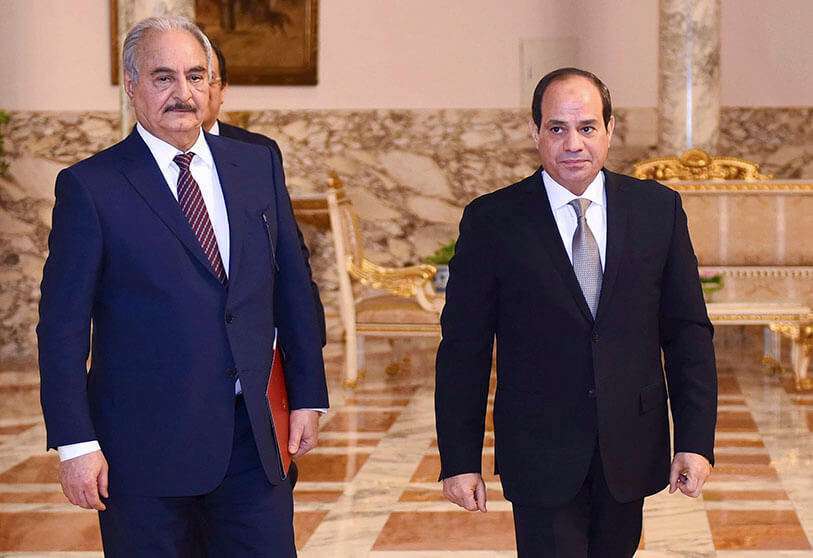
During the meeting, Egypt also said it was concerned about foreign interference in Libya and stressed the need to stop supplying them with weapons. The same newspaper reported that "Cairo confirmed that it would not allow any threat to its western borders".
In this context, Haftar has renewed its call for the lifting of the arms embargo against the Libyan National Army, just hours after the spokesman for its ranks, Ahmed al-Mismari, denounced on Tuesday the arrival in Misrata of a Turkish cargo ship carrying military vehicles and weapons. Al-Mismari also stressed that, after several setbacks on the western and southern fronts of Tripoli, they had regained control of Al Asaba's military installations in the west of the capital on Monday.
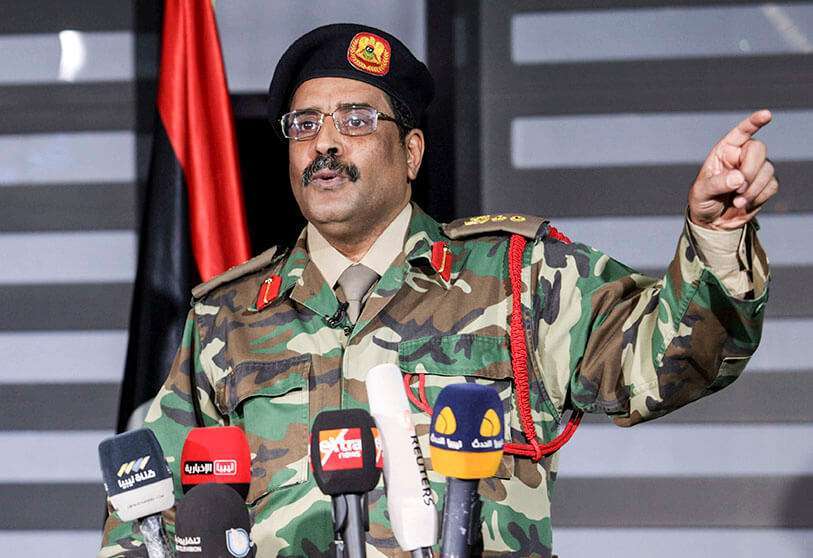
Haftar is supported by Jordan, Saudi Arabia, Egypt, the United Arab Emirates, Sudan, Russia and France; while the Tripoli government, backed by the Muslim Brotherhood and internationally recognized by the United Nations or Italy, receives military aid from Turkey and Qatar. The military escalation in this North African state has intensified in recent months following an agreement signed last November between Turkey and the Tripoli-based National Accord Government (NAG) led by Fayez Sarraj.
Within the framework of this security and economic cooperation agreement, Ankara has increased its presence in Libya, sending hundreds of mercenaries and dozens of shipments of military material. So far, Turkey has transferred more than 10,000 mercenaries to the North African nation, most of them from Syria, according to the Syrian Observatory for Human Rights, something that has not been welcomed by the international community.
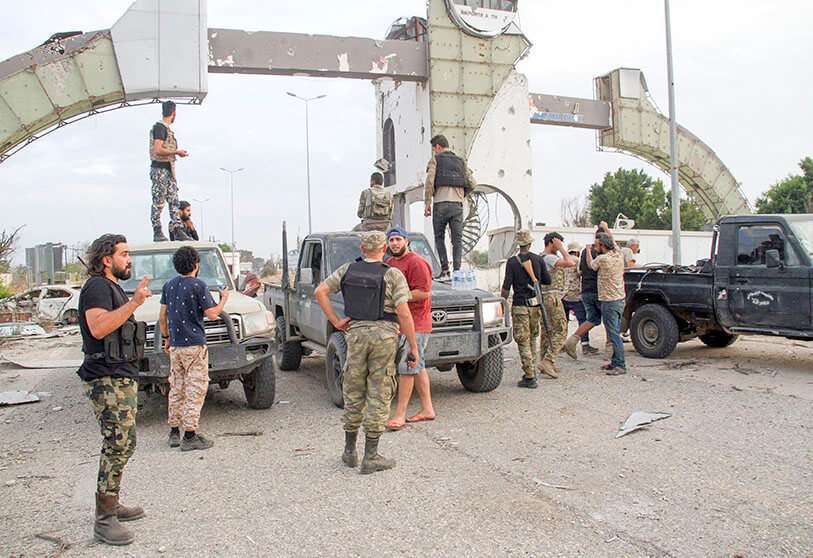
The GNA militias have announced this Wednesday the beginning of a military offensive to try to reconquer the city of Tarhouna, one of the most important logistical enclaves of the troops acting under Haftar's orders. A few hours later, sources from Operation Ira Volcano assured the EFE news agency that several units managed to break the resistance of the LNA troops and penetrate the airfield through the town of Qasr bin Gashir. A series of videos published on various social networks show various GNA vehicles circulating on the runways of this airport, occupied since April 2019 by LNA militias.
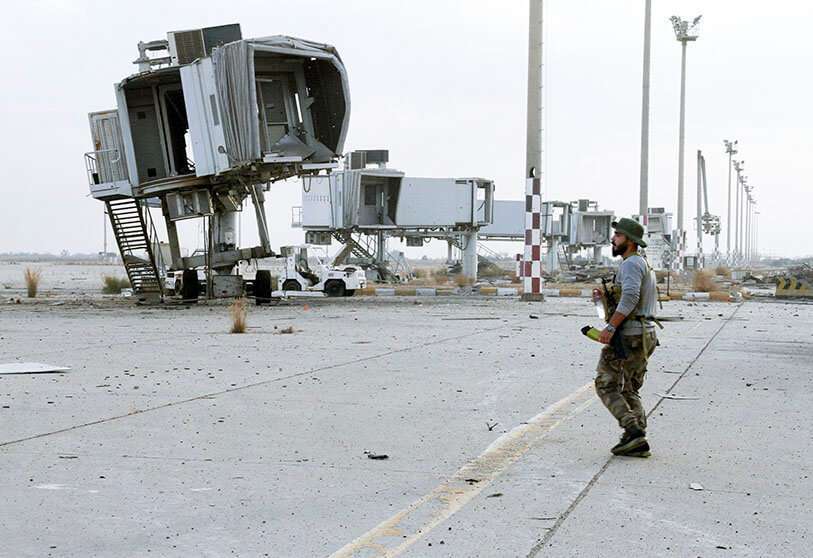
The reconquest of this key point came one day after the United Nations Support Mission in Libya (UNSMIL) indicated that the parties to the Libyan war would give the green light to the resumption of the Joint Military Commission (JMC) 5 + 5 talks relating to the last conference in Berlin on 19 January. "UNSMIL hopes that the response of the parties will coincide with a cessation of hostilities and a reduction in the use of hate speech in order to reach a solution that will restore the prestige of the State and its institutions, as well as the stability and well-being that the people deserve," the agency stressed in an official statement.
The director of the International Rescue Committee in Libya, Tom Garofalo also applauded this announcement and said that "a ceasefire in Libya is very necessary and must begin immediately. Since April 2019, more than 400 civilians have died as a result of the fighting and they continue to pay the highest price for the conflict. On Sunday alone, five more people lost their lives when a series of shells fell on the capital, Tripoli, another example of the indiscriminate nature of the attacks that have become a hallmark of this conflict".








